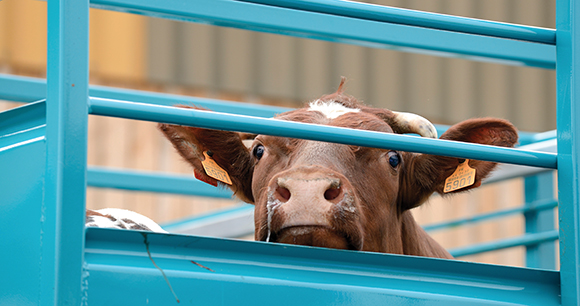After a delay (extended by COVID-19), the Hawaii Department of Agriculture (HDOA) has finally proposed regulations to protect animals transported between the Hawaiian Islands. While the draft regulations are a good start, they unfortunately omit critical components for ensuring animal well-being. Due to stress and environmental factors that can exacerbate existing conditions, animals are extremely vulnerable during transport. Therefore, the HDOA’s final regulations should take special care to address key animal welfare indicators.

The draft regulations rely on standards that have proved ineffective in preventing animals from suffering and death: In 2019, for example, 21 cattle died on a barge that was traveling from Honolulu to Kauai. Although the animals were inspected at the port in accordance with Hawaii regulations for preventing the transmission and introduction of diseases, no inspections were made of the barge or containers to ascertain whether they were suitable for transporting animals. Because of the lax shipping practices, the containers holding the animals were placed too closely together, limiting ventilation and causing the cattle to slowly suffocate during their journey. The only animal care standards in use at the time were the voluntary standards of the Hawaii Cattlemen’s Council—which are what Hawaii’s regulatory proposal is largely based on. These standards did not keep those cows safe then, and they will not keep cows safe going forward.
AWI is proposing to the HDOA that the rules be revised to incorporate provisions that would help prevent animals from dying or experiencing needless suffering. Specifically, we suggest the standards be modified to better protect animals from heat stress—which farm animals being transported by sea in containers are particularly susceptible to and which has been identified as a major contributor to poor welfare and death. We propose that the HDOA revise its ventilation requirements, impose limitations on load density, improve loading practices, and restrict cow container locations on ships so that animals are not placed in areas with excessive heat.
Further, we are strongly encouraging the HDOA to prohibit transport of animals that are too sick, lame, injured, or young to be transported. Animals in compromised physical condition are far less likely to cope well with the stress of travel, and are thus far more likely to experience pain, discomfort, and even death during transport. Further, the World Organisation for Animal Health and the US government recognize that transport of animals in these conditions should be prohibited. In 2016, federal regulations adopted “fitness to travel” standards for international travel, but animals on ships traveling between or within US states are not covered.
While the HDOA is taking an important step toward addressing the welfare of animals transported between the Hawaiian Islands, it is clear that major revisions are still needed. AWI encourages our members and others to comment on the HDOA’s draft document when it is made available for input. To be notified when the comment period opens, visit AWI’s Action Center and sign up to receive action alerts via email. We make it easy: Just click on the link in the email to submit your comments—we’ll even provide text that includes the key animal welfare points the HDOA needs to address.